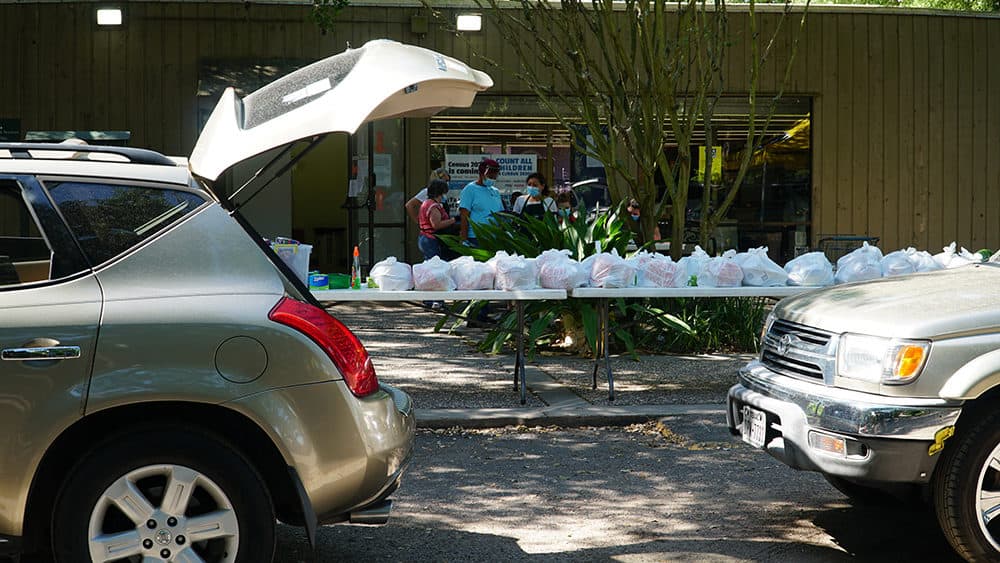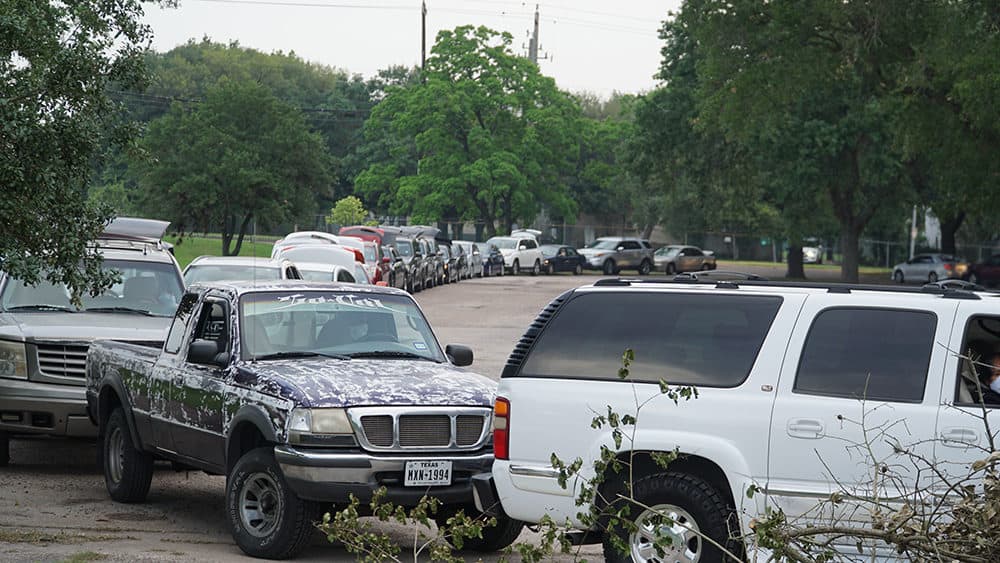Advertisement
Houston Food Pantry Faces 'Overwhelming' Demand From Unemployed Families

Before the pandemic, more than 37 million people in the U.S. were struggling with hunger and food insecurity. Now with unemployment soaring, that number is much higher — and growing.
Food banks throughout the country are scrambling to meet the demand, including one in Houston, Texas.
ECHOS food pantry, which also provides health and other social services, has more than tripled the amount of food it distributes to families and individuals since mid-March. In a normal week pre-pandemic, ECHOS would serve about 100 clients, who were mostly living in poverty or homeless.
Now, the food pantry sees around 750 families a week, most who are now without jobs and a part of vulnerable populations.
“It's overwhelming because we don't have enough staff or enough volunteers. We're not able to do as much as we wish that we could,” executive director Cathy Moore says.
Clients used to be able to come into the pantry and choose their own food. Now, because of social distancing measures, volunteers and staff bag up food items and provide curbside pickup. Security is on-site to keep the process civil and the lines orderly, considering some clients can become impatient while waiting in line for food for an hour or two, she explains.
Because of the long wait, cars begin to line up around 6:30 a.m. and 7 a.m., she says.

Moore says she’s been hearing the panic in people’s voices describing the unfamiliar situation that many are now facing.
“We've had a lot of new clients that are fearful because they've never been in this position before,” she says. “Families who have never been out of a job, never not been able to put food on a table. And now they're having to ask for help and they need other services, too.”
ECHOS has been trying to offset curbside food pickup with grocery vouchers and gift cards. That way, families can pick up the items they enjoy eating.
Staff and volunteers hand out a variety of foods including proteins, cereal, spaghetti and sauce, plus canned chicken and salmon, which the pantry considers “premium” items.
The pantry is sustained through food from the Houston Food Bank, another nonprofit in town where families donate boxed and bagged foods, she says.
But the stress of increased need is weighing on her and the staff, she says. They’ve been “running at a sprint level” trying to service their community now since March 15.
Advertisement
Although they’ll still serve the same number of families per week, ECHOS is limiting food distribution days to three days a week.
The impact of the coronavirus on the economy has been devastating and likely won’t end soon. To sustain the work of food pantries around the country, Moore says more volunteers and funding are necessary.
“There are nonprofits in your community that need volunteers, too, because it's really hard doing this work without help,” she says. “We need funding to keep food in our pantry, and we also need funding to purchase gift cards and food vouchers so our families can buy perishable food items that they want and that the family likes.”
Marcelle Hutchins produced and edited this interview for broadcast with Peter O'Dowd. Serena McMahon adapted it for the web.
This segment aired on May 20, 2020.

